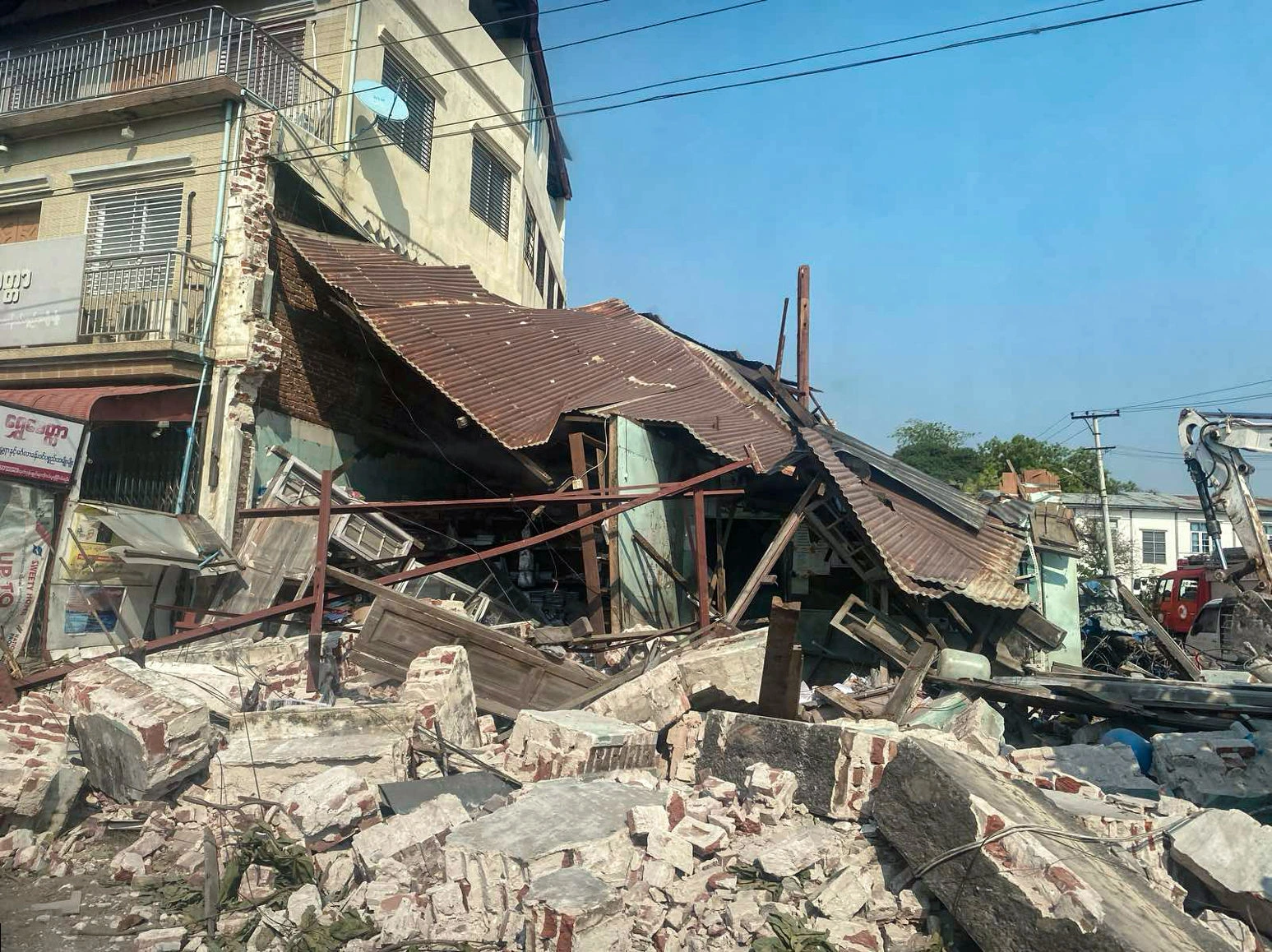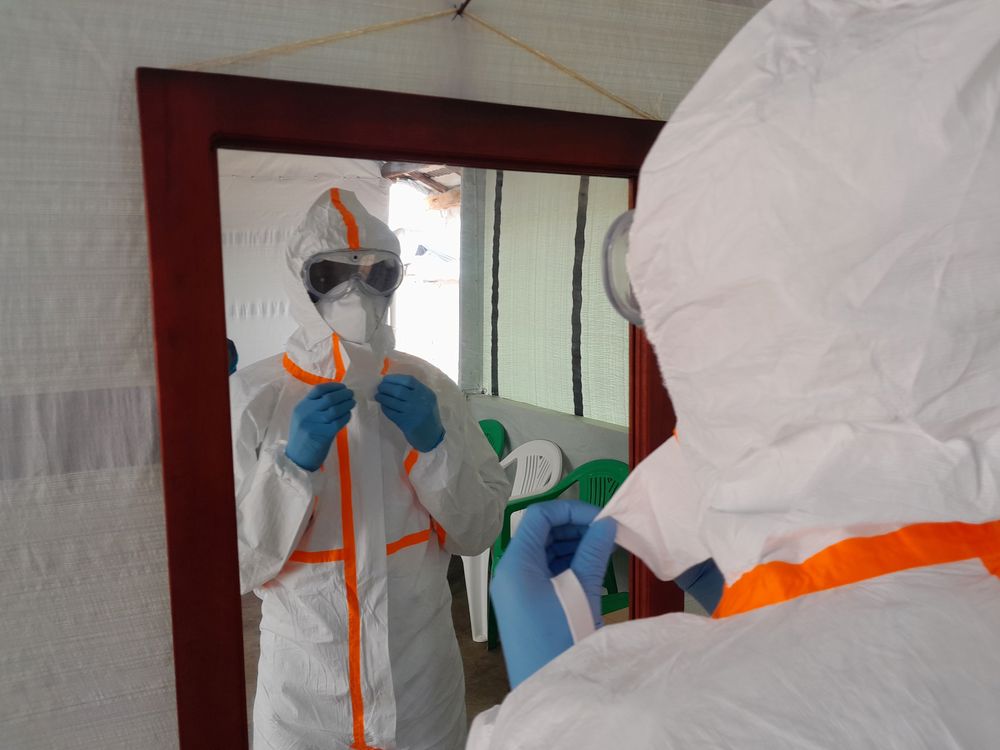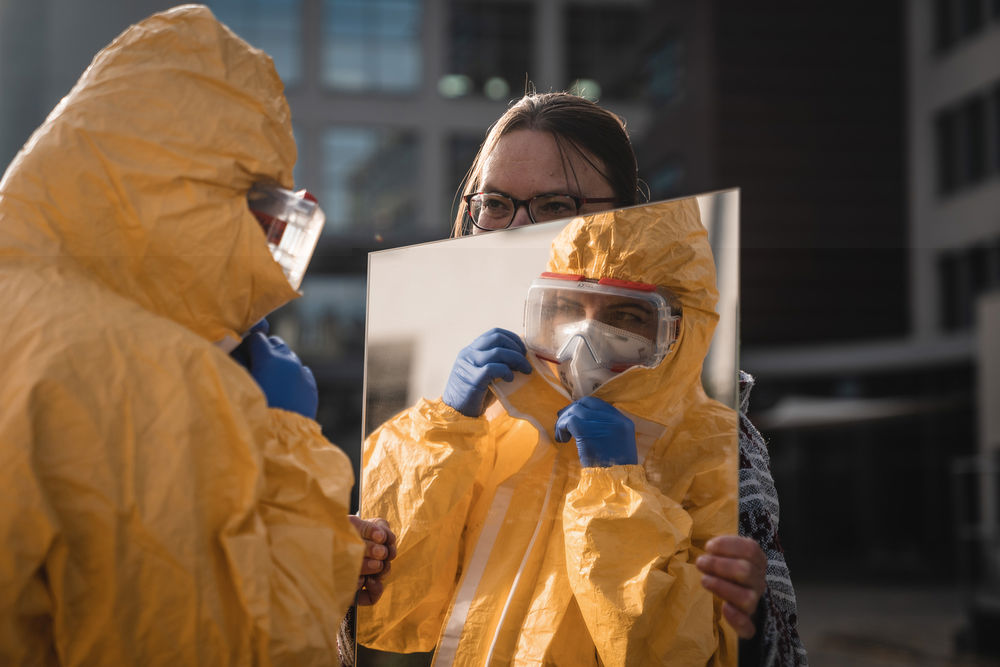Médecins Sans Frontières (MSF) started an Ebola emergency response in Uganda, after the outbreak has been declared on September 20th. The teams are involved in supporting the Ministry of Health (MOH) in case management and are doing health promotion, a major pillar in fighting the disease. Outreach activities take place in Mubende and Kasanda, where the first cases were identified in September, and have now started in Kampala and Masaka.
Health promotion is a vital part of fighting an epidemic. In an Ebola-response, it is one of the main pillars to tackle the outbreak. Since the beginning, MSF has been working closely with the Ugandan Ministry of Health. MSF has been constructing Ebola Treatment Centres (ETCs) and smaller Ebola treatment Units (ETUs) and have been conducting outreach activities in areas where the virus appears. The health promotion teams go into the community and share information on infection prevention and control with health workers, community members and local leaders as well as traditional healers.
Alunga Tom is in charge of outreach activities for MSF in the Ugandan Ebola response and risk communication in Mubende, where the first cases were declared. Together with his team of over 50 health promoters he goes into the communities to pass on correct and timely messaging around the virus: “Basically, we speak about the virus and what Ebola is. We let people know how they can get the virus and who is able to spread it. People for example need to know that if you are a contact, you are not sick. You are only sick when you have begun to develop symptoms. Then the person is infectious.”
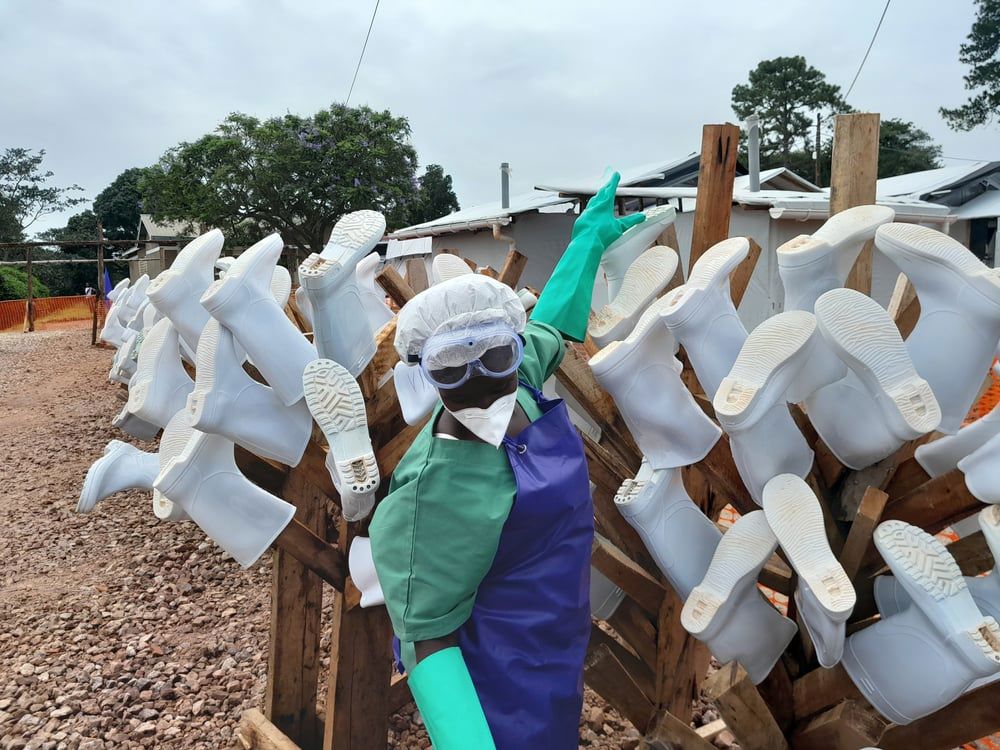 Hygienist is hanging the boots to dry after being decontaminated at Ebola Treatment Center. © Sam Taylor/MSF
Hygienist is hanging the boots to dry after being decontaminated at Ebola Treatment Center. © Sam Taylor/MSF
As it is the case in many epidemics, rumors are spreading rapidly. Regina Kasule Nakabuye is one of the health promoters in Tom’s team. She experiences every day, how hard it can be to fight fake news and to pass on correct health messages to the community: “Some people are scared but others also do not believe that Ebola is there. Especially the youth around Mubende, for example, do not trust the information they hear.” The community in the area are mainly farmers and people are depending on petty jobs. They suffered during the lockdown due to COVID-19, since they had no income. “There is a big link between COVID-19 and Ebola because people still remember how it was back then and now they are afraid it will happen again”, explains Regina. “But we are very patient with them, and we try to be as down to earth as possible. We present the messages in a way that people understand. And we repeat ourselves if needed.”
MSF is focusing its intervention on the prevention of the spread of the outbreak and tries to reduce the time between the onset of the symptoms and admission to a health facility. The outreach project in Mubende entails health promotion, infection prevention and control, investigation, contact tracing and gives social support to contacts who have to self-isolate if necessary.
Tom Alunga explains: “Every day, my team is dispatched in different groups. Some work closely with the contact tracers and try to prevent resistance by the communities. If they have the right information, we reduce fear, and people are more transparent about potential contacts. The second team is attached to the field investigators by the MOH. If there is an alert about a potential case in the communities, they visit the place to gather the details.” There is a big need for information, especially if a person shows Ebola-symptoms and needs to be evacuated: to reassure the family of the patient, to avoid rumors but also to prepare contact tracing straight away. Additionally, a third team called “flying health promoters” are deployed if special needs are identified during the outreach activities. These needs could either be psychosocial support or social support in case basic food items are required in a household, for example if people are self-isolating after having been identified as contacts.
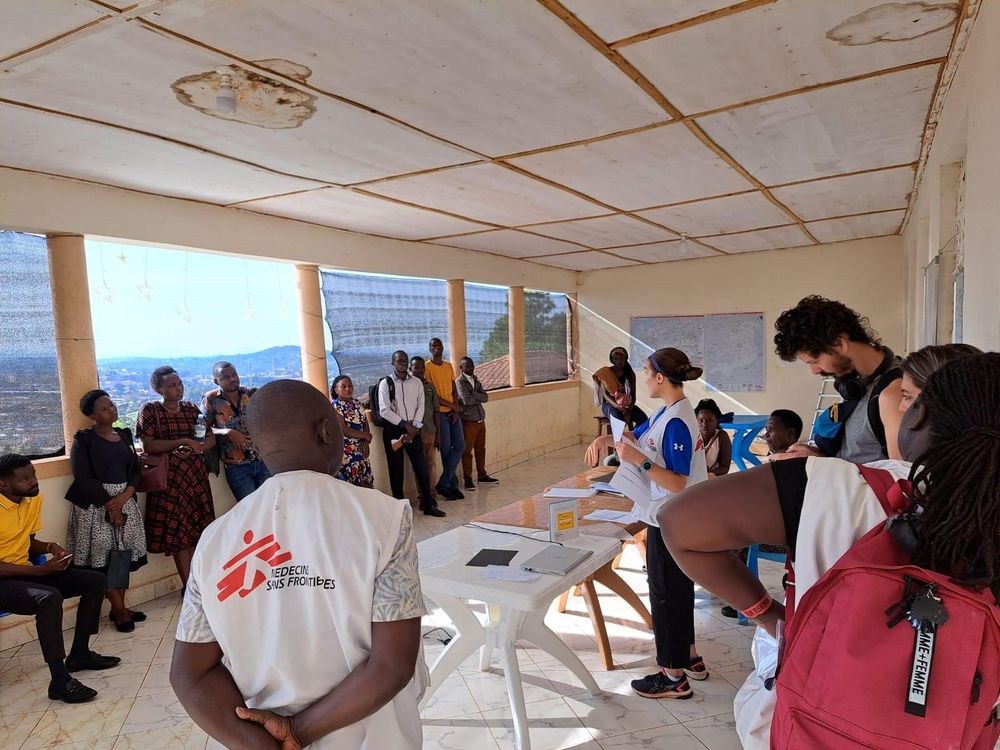 An MSF outreach team gathers in Mubende for a briefing before heading out to visit communities affected by Ebola. © MSF/Sam Taylor
An MSF outreach team gathers in Mubende for a briefing before heading out to visit communities affected by Ebola. © MSF/Sam Taylor
Information is needed to prevent Ebola but even beyond that. Survivors face strong stigmatisation once they leave the ETCs or ETUs. People fear them and keep their distance which can create tensions and often also leads to marginalisation of the survivors. Regina is convinced, there is still a long way to go: “We are working really hard and will continue to do so to reach as many people as possible. A lot of sensitisation is needed. We continue to go to the villages, we follow up on issues and we go where the survivors are and give the right information about Ebola and its transmission.”
Médecins Sans Frontières (MSF) first worked in Uganda in 1980. Today, our teams in Uganda provide HIV care, patients with Tuberculosis and support victims of sexual and gender-based violence. We also offer sexual and reproductive health services. Following the Ebola outbreak, which was officially declared on September 20th, MSF has started an emergency response to support the Ministry of Health and the population of Uganda in its fight against the epidemic. Nine districts – Mubende, Kasanda, Kampala, Jinja, Masaka, Wakiso, Kyegegwa, Bunyangabu and Kagadi- have so far been affected. As of 21st of November, 141 Ebola-cases have been confirmed and 55 deaths.
Doctors without Borders is working to reduce mortality via case management with a decentralised approach. Ebola Treamtent Centers are set up in Mubende (40 beds and 39 beds) and a Treatment Unit in Madudu and Bweyongedde (each 8 beds), close to the epicentre of the outbreak. MSF is constructing a 56-bed facility in Kampala and a 24-bed facility in Kawago, Kasanda district. MSF is additionally supporting existing health structures in Masaka and Jinja to ensure safe isolation and onward referral of suspect cases.

